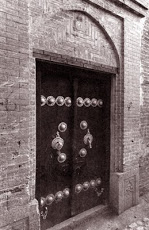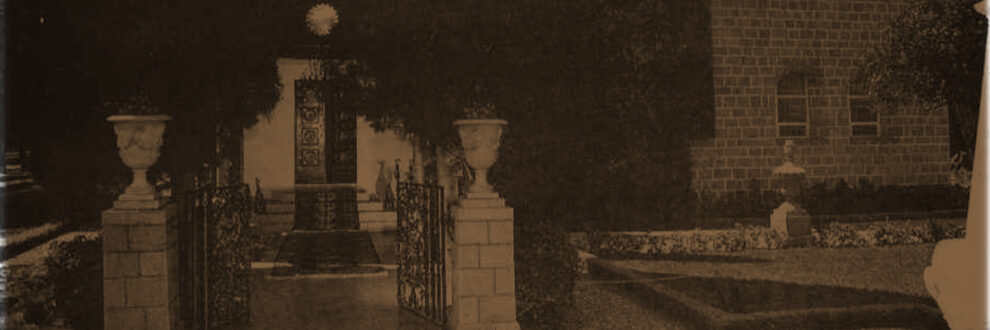 Mírzá Muhammad, the Servant at the Travelers’ Hospice
Mírzá Muhammad, the Servant at the Travelers’ Hospice
Born: Unknown
Death: Unknown
Place of Birth: Isfahán, Iran
Location of Death: ‘Akká, Israel
Burial Location: No cemetery details
This youth of God was from Isfahán, and from an early age was known to its leading divines for his excellent mind. He was of gentle birth, his family was known and respected, and he was an accomplished scholar. He had profited from philosophy and history alike, from sciences and arts, but he thirsted after the secret of reality, and longed for knowledge of God. His feverish thirst was not allayed by the arts and sciences, however limpid those waters. He kept on seeking, seeking, carrying on debates in gatherings of learned men until at last he discovered the meaning of his longing dream, and the enigma, the inviolable secret, lay open before him. Suddenly he caught the scent of fresh flowers from the gardens of the splendor of God, and his heart was ashine with a ray from the Sun of Truth. Whereas before, he was like a fish taken from the water, now he had come to the wellspring of eternal life; before, he was a questing moth; now he had found the candle flame. A true seeker after truth, he was instantly revived by the supreme Glad Tidings; his heart’s eye was brightened by the new dawn of guidance. So blinding was the fire of Divine love that he turned his face away from his life, its peace, its blessings, and set out for the Most Great Prison.
In Isfahán he had enjoyed every comfort, and the world was good to him. Now his yearning for Bahá’u’lláh freed him from all other bonds. He passed over the long miles, suffered intense hardships, exchanged a palace for a prison, and in the ‘Akká fortress assisted the believers and attended upon and served Bahá’u’lláh. He who had been waited upon, now waited on others; he who had been the master was now the servant, he who had once been a leader was now a captive. He had no rest, no leisure, day or night. To the travelers he was a trusted refuge; to the settlers, a companion without peer. He served beyond his strength, for he was filled with love of the friends. The travelers were devoted to him, and the settlers grateful. And because he was continuously busy, he kept silent at all times.
Then the Supreme Affliction came upon us and the absence of Bahá’u’lláh was not to be endured. Mírzá Muhammad could not stay quiet, day or night. He wasted away, like a candle burning down; from the fiery anguish, his liver and heart were inflamed, and his body could bear no more. He wept and supplicated day and night, yearning to soar away to that undiscovered country.
“Lord, free me, free me from this absence,” he would cry, “let me drink of reunion’s cup, find me a lodging in the shelter of Thy mercy, Lord of Lords!”
At last he quit this dust heap, the earth, and took his flight to the world that has no end. May it do him good, that cup brimming with the grace of God, may he eat with healthy relish of that food which gives life to heart and soul. May God lead him to that happy journey’s end and grant him an abundant share in the gifts which shall then be bestowed.
Source:
‘Abdu’l-Bahá. Memorials of the Faithful. Bahai.org.
Image:
(c) Baha’i Chronicles






